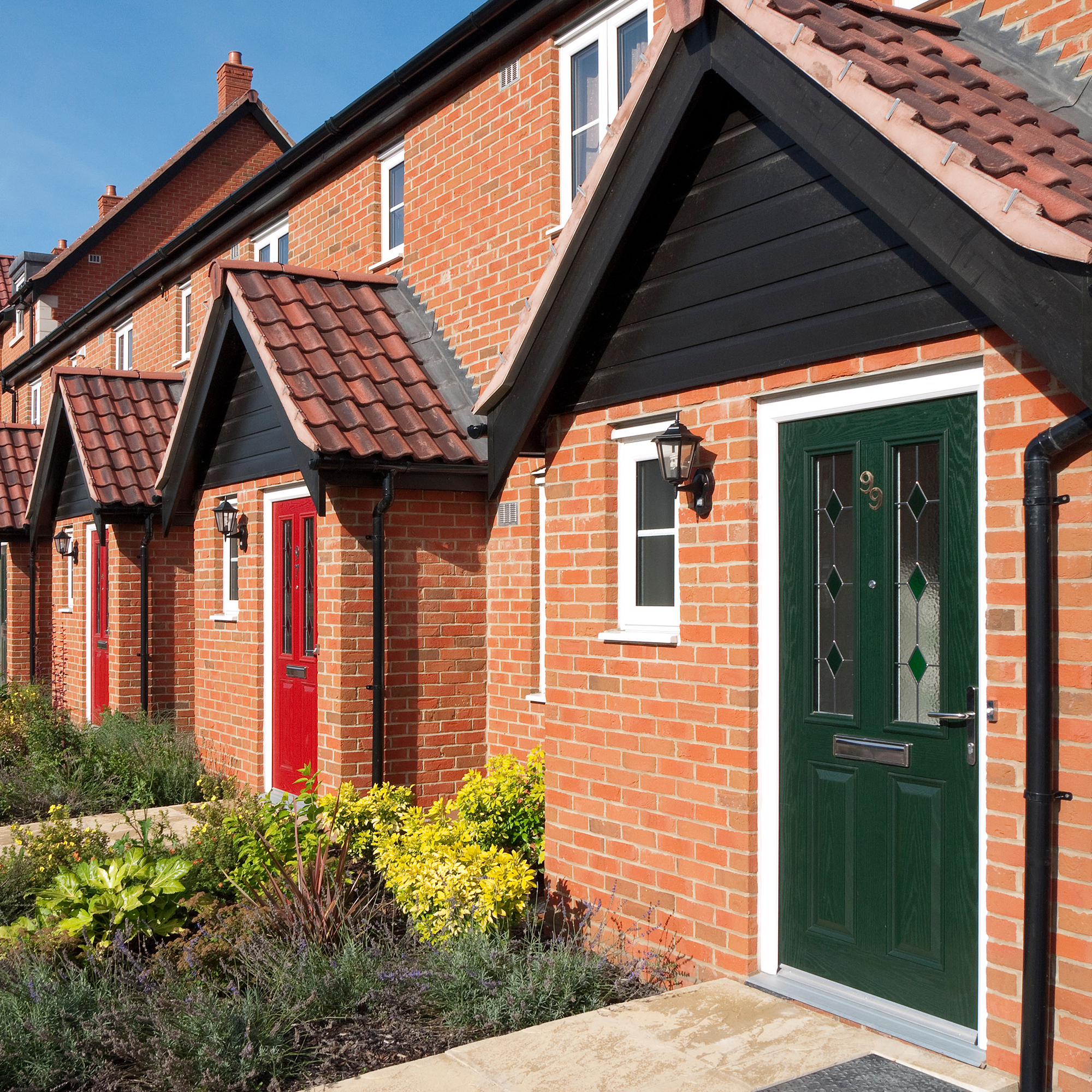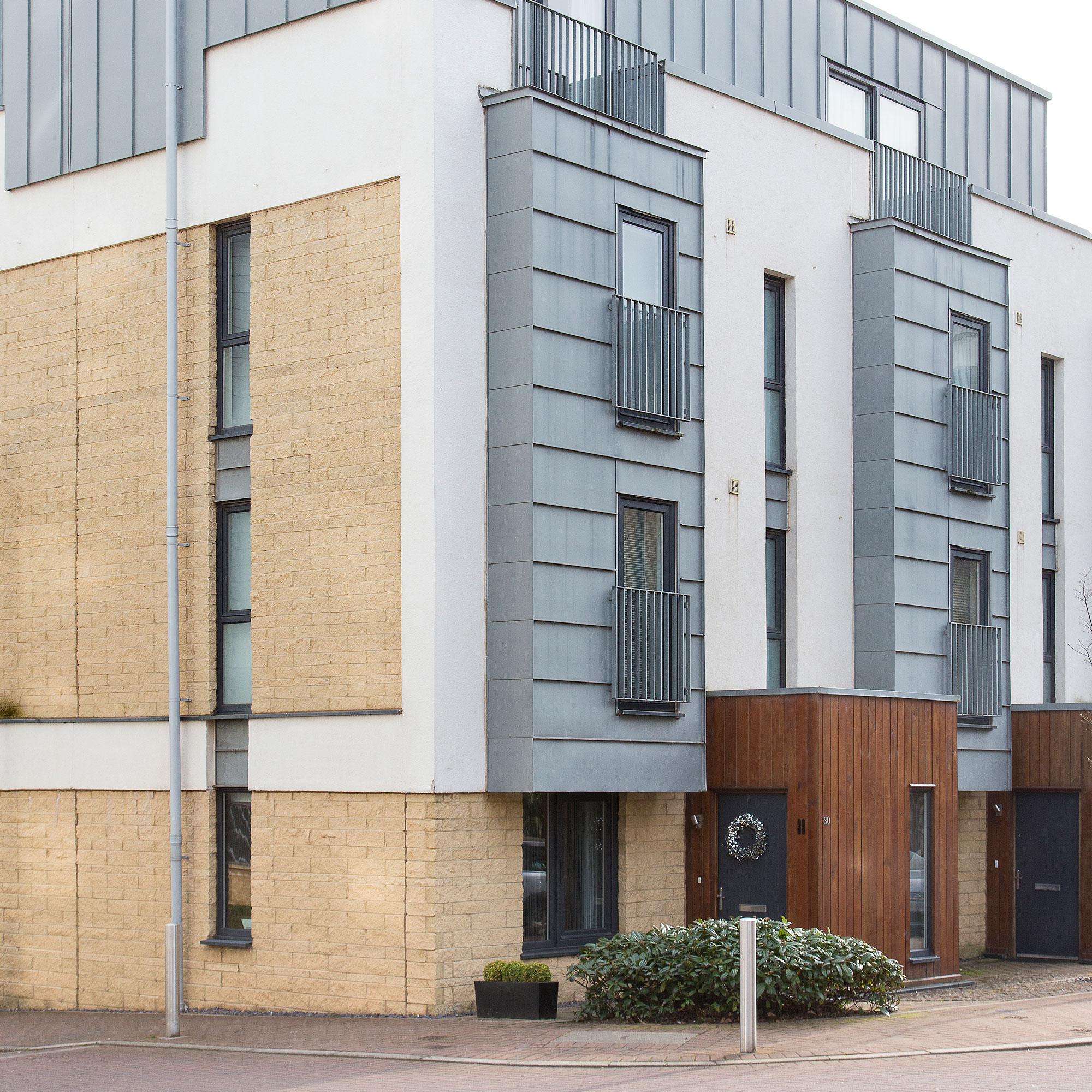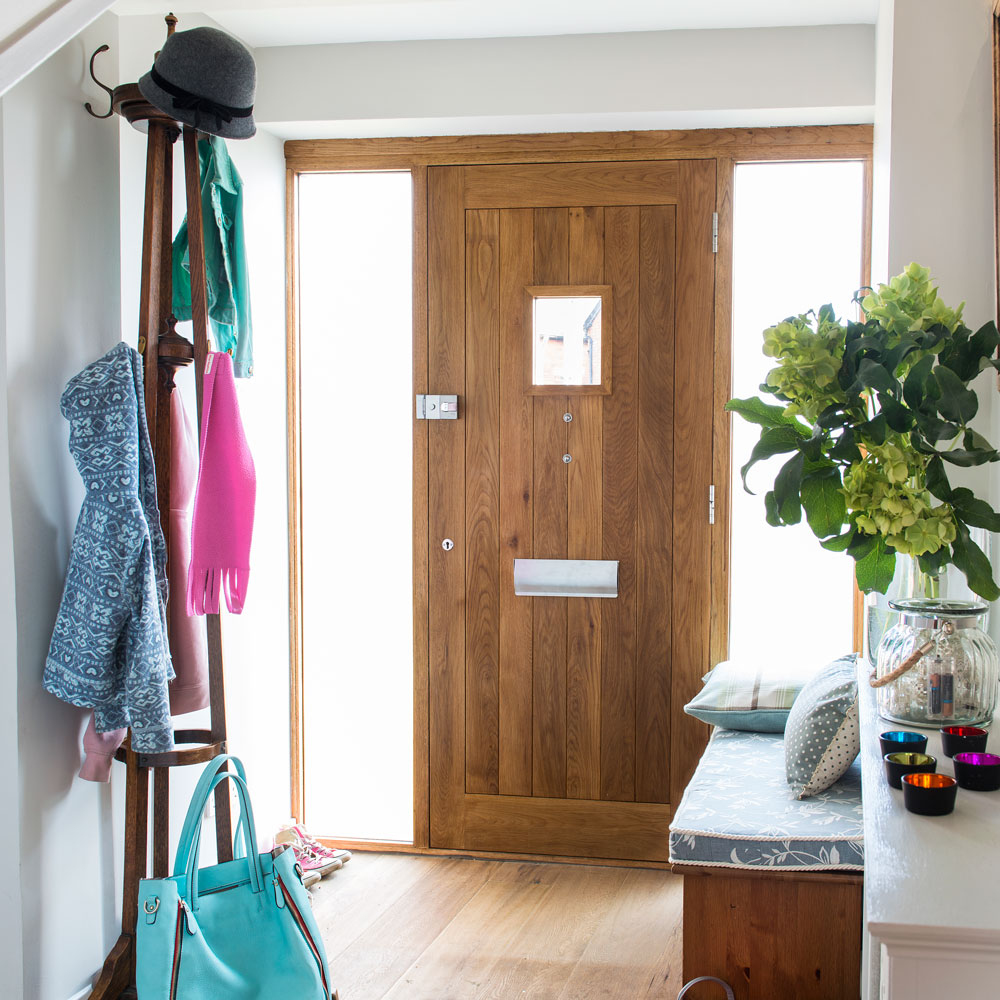The Help to Buy scheme explained – including the new equity loan
Find out how the Help to Buy scheme allows first time buyers to purchase a new build property with an equity loan

The Help to Buy scheme is aimed at first-time buyers to help get a foot on the property ladder. It offers a five-year interest-free equity loan paid for by the Homes and Communities Agency (trading as Homes England). It’s a government agency funded by the Department for Levelling Up, Housing and Communities.
A record 55,000 households purchased a home through the Help to Buy scheme in the financial year 2020-21. Since the scheme was introduced in April 2013, 328,506 households have now purchased a home through the programme.
This guide will explain everything you need to know about Help to Buy. From whether you’re eligible, to how much you can borrow and what this house-buying programme is like.
The Help to Buy scheme – explained

What is the Help to Buy scheme?
The Help to Buy: Equity Loan scheme was relaunched on 1 April 2021 and will run until March 2023. As with shared ownership, the aim of the scheme is to help first-time buyers get onto the property ladder. Prospective first time buyers in England can apply for an equity loan of up to 20 per cent of the value of a new-build home. Buyers in London can borrow up to 40 per cent to reflect the higher property prices in the capital.
The amount that you can spend on the home depends on where in England you buy:
| REGION | MAXIMUM PROPERTY PRICE |
| North East | £186,100 |
| North West | £224,400 |
| Yorkshire and the Humber | £228,100 |
| East Midlands | £261,900 |
| West Midlands | £255,600 |
| East England | £407,400 |
| London | £600,000 |
| South East | £437,600 |
| South West | £349,000 |
As an example, if you want to buy a house in South West England for £200,000 with a five per cent deposit and a 20 per cent Help to Buy equity loan. You will need £10,000 deposit, £40,000 Help to Buy and a £150,000 mortgage.
Who is eligible for the Help to Buy scheme?
You need to be at least 18 years old. You cannot own a home or land anywhere in the world now or in the past. If you are purchasing with another person, they also must meet the the 'first time buyer' criteria.
Get the Ideal Home Newsletter
Sign up to our newsletter for style and decor inspiration, house makeovers, project advice and more.
If you’re married or in a cohabiting relationship, you’ll have to make a joint application with your spouse or civil partner and both live in the home having it as your only residence.

Do all lenders offer Help to Buy mortgages?
Not all lenders will offer a Help to Buy mortgage. ‘Lenders that do offer Help to Buy mortgages will vary mortgages from their standard mortgage products. This is because you are one of three parties involved in your mortgage, which includes yourself, the government and your provider,’ says Kate Burns, Mortgage Consultant at KB Mortgage Services.
Can I buy any new-build home under Help to Buy?
Not all developments sell their homes with Help to Buy. ‘However, most of the larger builders have to provide a certain amount of Affordable Housing depending on the size of the development. This is agreed with the local authority,’ says Gemma Caufield, Residential Sales Branch Manager at Bramleys.
Any home builder that wants to sell homes via Help to Buy must apply to Homes England to become part of the scheme. The developer has to be a UK-based company and provide a Building Warranty. All Help to Buy home builders must have agreed to sign up to the New Homes Ombudsman, too. The scheme supports buyers in resolving or being compensated for poor building work and enforces higher building standards.
How do I pay back the loan?
For the first five years, the equity loan is interest-free. You only pay a £1 monthly management fee by direct debit.
From year six, you pay the £1 monthly management fee, and you pay a monthly interest rate of 1.75 per cent of the equity loan.
You continue to pay interest until you have paid off your loan in full. The interest rate will rise in April each year based on the rate of inflation at the time, plus two per cent. If the rate of inflation is 0 per cent or less, the interest rate will rise by two per cent.
You must repay the equity loan in full when you pay off your repayment mortgage, sell your home, or reach the end of your loan term, which is usually 25 years. You can pay off your equity loan in full or make part payments at any time before then. However, any part payment you choose to make on top of a monthly interest payment must be at least 10 per cent of the market value of your home at the time. Part payments will reduce the amount you owe on the equity loan.
What happens when I sell my home?
You can sell your home at any time. You will have to pay off the equity loan before the sale completes. ‘When you’re ready to sell the property that you purchased via Help to Buy, an independent valuation needs to be arranged to work out the full value of the home,’ says Jonny Enticknap, at Hamptons.
‘You then pay back the percentage loan that was borrowed from the Government, which varies according to how much the property is now valued at,’ he says.
What is the Help to Buy house buying process?

With three parties involved buying a house via the Help to Buy scheme can be more complicated than a standard property purchase. Here's a summary of the procedure.
Find a property
First find a new build with a homebuilder who is registered with the scheme. Visit Own Your Home to search agents in your area.
When you've found a home you will need to pay a reservation fee and receive a signed Reservation form from the homebuilder. The fee will be refunded if you’re not approved for an equity loan.
Register your interest
Next, register with your Help to Buy agent in your area at Own Your Home.
Send your agent a completed Property Information form and the signed Reservation form. The agent will then check your eligibility. ‘It’s advisable to also take independent advice from a financial advisor or mortgage broker at this stage,’ says James Smith, Director and Co-founder at Holden Smith. ‘To ensure this type of lending is the most appropriate for your personal situation.’
If your application is approved, your Help to Buy agent will give you an Authority to Proceed issued by Homes England. This is an official document stating that you’re eligible for the equity loan and you can progress with buying the home.
Exchange contracts
Appoint your own solicitor or conveyancer who will give you legal guidance and further forms to fill in. The Authority to Proceed is valid for three months. If it expires you will need to reapply. At this stage, you also need to arrange your repayment mortgage with a lender.
Once all the necessary forms and title checks are complete, you can exchange contracts. You’ll be expected to pay at least five per cent of your deposit and you are legally bound to buy your new home.
Completion
At this point you will pay the remainder of your deposit, your lender pays the homebuilder the full amount of your mortgage and Homes England pays your equity loan to the homebuilder.
Now you legally own your new home. You can officially start the moving house checklist.
‘Once legal completion occurs, the Help to Buy agent passes your details onto the equity loan administrator to manage the equity loan account until it is paid in full,’ says Kate Burns, Mortgage Consultant at KB Mortgage Services.

Help to Buy: the pros and cons
What’s great about Help to Buy?
- It helps first-time buyers get a brand-new home with a small deposit.
- You won’t have to pay any interest on the equity loan for the first five years.
What are the negatives?
- An equity loan is secured against your property in the same way a repayment mortgage is. This means if you are unable to keep up with the repayments, you run the risk of losing your home.
- Once you have exchanged contracts, you may have to pay costs if you change your mind and back out of buying the home.
- You can’t make any structural changes to your property, such as an extension or converting a bedroom into a bathroom, without permission.
- You are not allowed to sublet your home without permission which can be restrictive.
Are there any further considerations?
You must complete buying your home within six months of exchanging contracts.
The amount you borrow is based on the market value of your new home when you buy it. If the market value of your home increases, so does the amount you have to pay.
However, if the value of your home decreases, the amount you have to repay also falls. ‘Over the last 18 months we’ve seen values rise across the UK, so it’s unlikely people will see a drop in property value unless they initially paid significantly more than market value for the property,’ says Jonny Enticknap.
Factor in extra fees. ‘There is a significant amount of paperwork for both a financial advisor, if you employ one, and your solicitor to complete with the Help to Buy loan,’ says James Smith. ‘So expect an additional fee on top of the usual solicitor fees as it can be quite an onerous paper process.’

Sophie Vening is a freelance journalist and editor with more than 16 years’ experience writing about homes and properties. She’s worked for some of the UK’s leading interiors, self-build and property titles including, Grand Designs, Ideal Home, House Beautiful, Build It, The Metro Homes & Property and The Evening Standard Homes & Property.
She enjoys writing about complex issues in an easy-to-understand way.
-
 Wood drenching is the calming new twist on the colour drenching trend – here’s how to make the look work in your home
Wood drenching is the calming new twist on the colour drenching trend – here’s how to make the look work in your homeIt’s easier than ever to embrace natural materials
By Maddie Balcombe
-
 Aldi is launching a £200 day bed with four different features - its sleek design is suited to the whole family
Aldi is launching a £200 day bed with four different features - its sleek design is suited to the whole familyYou don't want to miss out on this Specialbuy
By Kezia Reynolds
-
 How to set up a drip watering system that saves water and a lot of effort
How to set up a drip watering system that saves water and a lot of effortKeep your plants hydrated (and your water bill down) with this clever garden watering solution
By Natalie Osborn
-
 You can claim back over £300 a year from HMRC if you work from home - here’s how to check if you’re eligible
You can claim back over £300 a year from HMRC if you work from home - here’s how to check if you’re eligibleWhen it comes to saving, every little helps
By Kezia Reynolds
-
 Experts have revealed the best day to renew your home insurance policy - you’ll want to do it sooner rather than later
Experts have revealed the best day to renew your home insurance policy - you’ll want to do it sooner rather than laterDon't leave this task at the bottom of your to do list
By Kezia Reynolds
-
 Is a variable rate mortgage ever a good idea? Experts weigh in
Is a variable rate mortgage ever a good idea? Experts weigh inOur money expert explains what a variable rate mortgage is, who they can be good for, and the pros and cons of this kind of mortgage
By Samantha Partington
-
 I’m a first-time buyer, what are my chances of getting a mortgage right now?
I’m a first-time buyer, what are my chances of getting a mortgage right now?And what you can do to increase your odds
By Rachel Wait
-
 Should you ever pay above the asking price for a home?
Should you ever pay above the asking price for a home?Our money expert explains whether you should ever pay over the asking price for a home, especially if house prices fall as predicted
By Samantha Partington
-
 Should I fix my mortgage and how long should I fix for?
Should I fix my mortgage and how long should I fix for?We speak to the experts to find out whether you should fix your mortgage and how long for as well as the impact further interest changes could have on your decision
By Samantha Partington
-
 We put your mortgage questions to two leading experts, here's what they said
We put your mortgage questions to two leading experts, here's what they saidAs mortgage panic continues, we've answered the most common questions - from when mortgage rates will come down, to when you actually have to pay stamp duty
By Samantha Partington
-
 'My mortgage is set to skyrocket - what should I do?' 5 potential solutions from a money expert
'My mortgage is set to skyrocket - what should I do?' 5 potential solutions from a money expertIf you're facing higher mortgage costs, our money expert explains various courses of action you could take to ease the pressure
By Samantha Partington